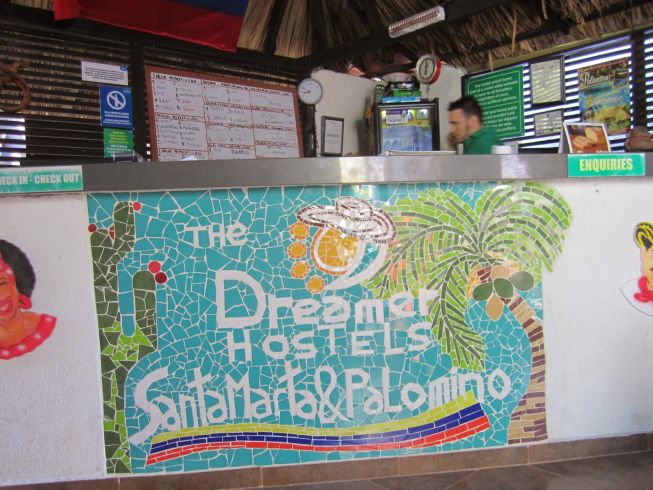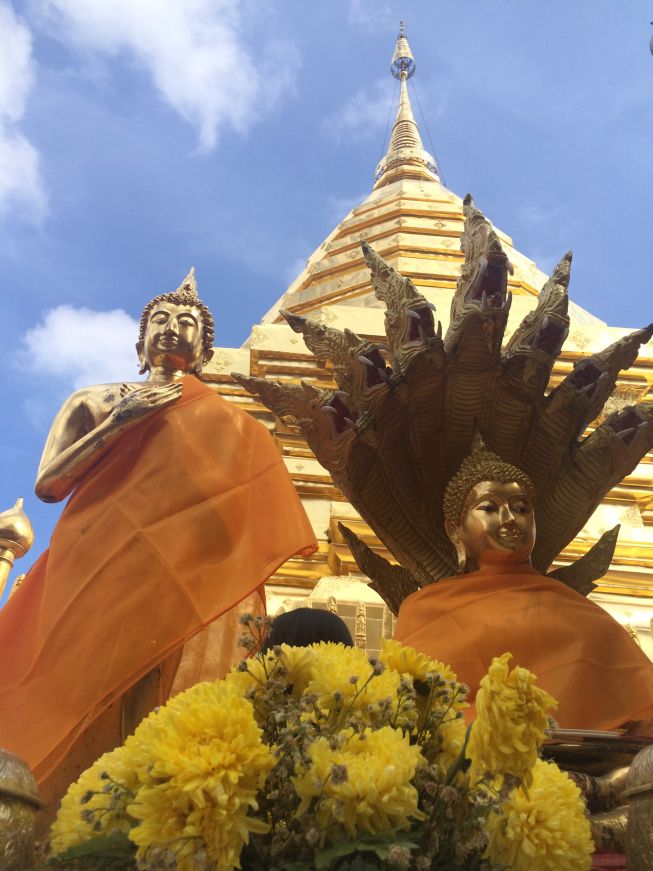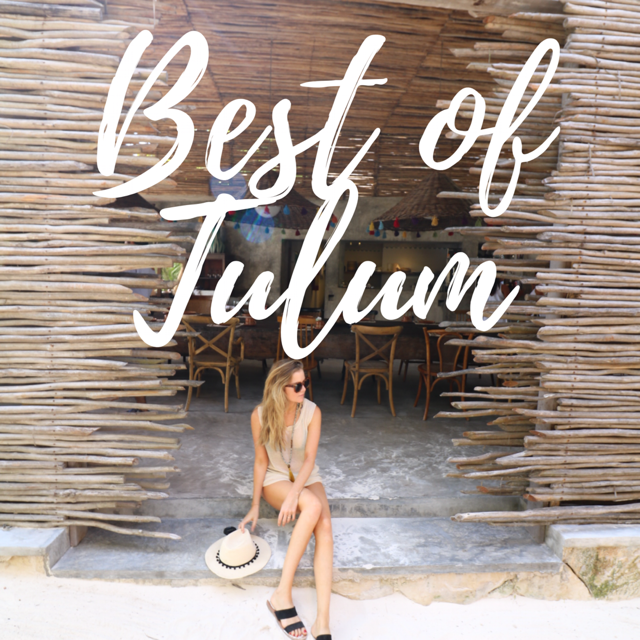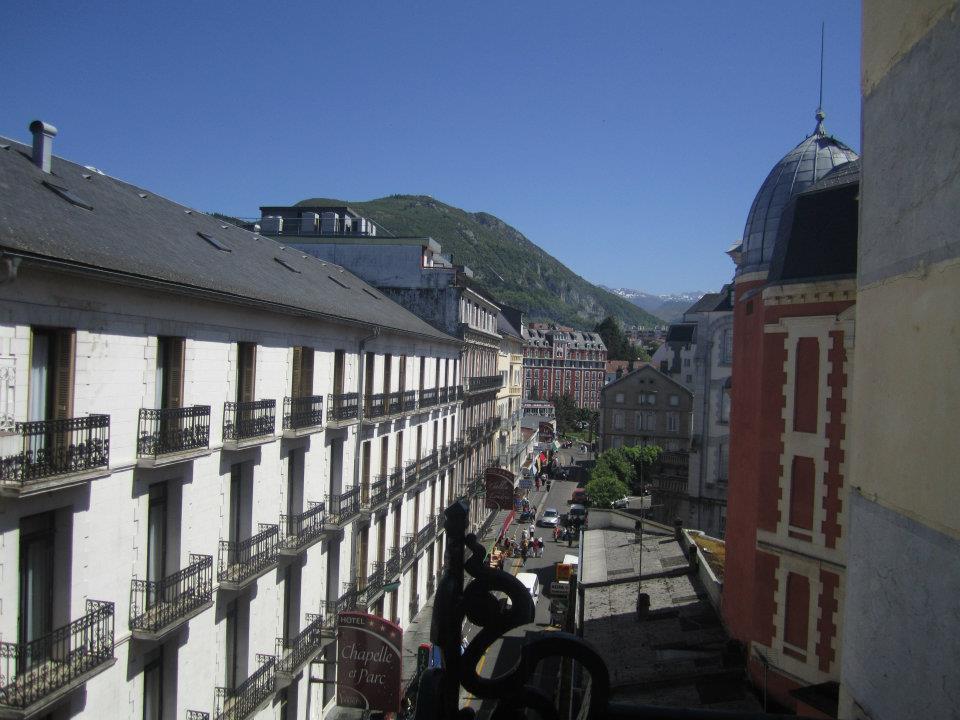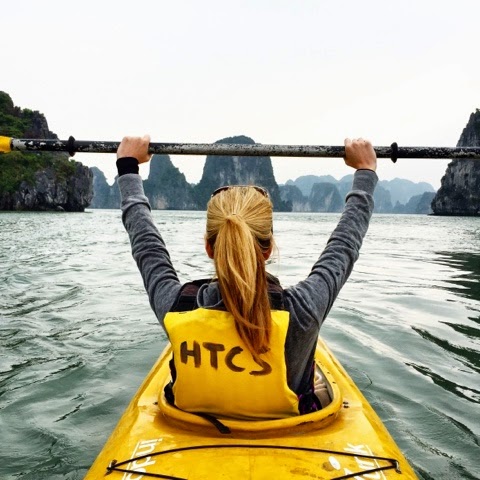WHERE TO STAY
My research on where to stay in Santa Marta pretty much started and ended by reading that the Dreamer Hostel was rated best hostel in Colombia for 2014.
Dreamer Hostel was the perfect change of pace from the nonstop party at Casa Kiwi in Medellin. Tucked away on a quiet road, the tranquility envelops you the moment you step through the front door and up to the thatched roof check in desk. Hammocks are strung from every palm tree surrounding the large pool. Backpackers lounging around, some with brightly colored frozen cocktails, reading and sunbathing. The hostels bar, pool table and full service (delicious!) restaurant are located on the ground level, with rooms surrounding the perimeter. Upstairs, there is a full kitchen for backpackers personal use, a tv lounge and computer station.
Each room was a different theme around the world, with vivid wall paintings and a cheery disposition. We bunked up in a four person shared room with an in suite bathroom for $10 USD a night, but
private rooms sans bunk beds were available for $19 USD.
private rooms sans bunk beds were available for $19 USD.
The hostel exceeded my expectations, but the location did not. The area outside the front door felt rather desolate and was far from the ‘beachfront’ I had imagined. Considering the airport in Santa Marta is literally on the ocean and the majority of our drive was along the most crystal blue waves and white beaches I thought it was safe to assume the hostel would at least have proximity to the beach.
Thankfully, the front desk quelled my disappointment with their activity board.
WHAT TO DO
This hostel is the closest to Tayrona – which is known for it’s gorgeous pristine beach, indian ruins, mangroves, hiking trails, a natural pool, and reefs for snorkeling and scuba diving. The hostel had sign ups for a daily van ride to the area, as well as opportunities to sign up for 4 or 5 day hikes to the ruins and even scuba diving certification programs!
If I only had a night or two in Santa Marta, I would have spent the day at Tayrona, but we opted for a day trip to Minca instead, on the basis that we would be heading to the beaches of Palomino soon.
Minca was similarly a full day excursion you could sign up for at the front desk. We climbed high into the mountain in an old jeep, watching the foliage become more tropical with each turn. After an hour and a half bouncing through the jungle roads we arrived at La Victoria coffee plantation. The vista was gorgeous, with the hot sun beat down on the exotic flowers. The tour was in Spanish, and our young tour guide maneuvered us through the equipment, into the factory and out to the fields, explaining the process along the way. The tour ended with a cup of the strong and bold coffee, and I relished in the only good cup of coffee I had (and would have) since I arrived in Colombia. Supposedly, Colombians send their best beans to America… and they use the less desirable, imperfect beans for their brews. No wonder the coffee they drink is always drowning in milk and overflowing with sugar.
DISCLAIMER: BUGS: The tour was informative and enjoyable — but the incessant bug bites kept me from fully appreciating my surroundings. These devilish little mutants – a cross between mosquitos and sand fleas – tore apart my legs in the most excruciating way. There wasn’t a spot left on either leg for a bug bite after they were done with me. And these bites hurt; leaving these little stingers in each raised bite mark. Supposedly, the locals drink gin and tonic and wash with picante soap to avoid the bites. If I returned, I’d have a fifth of gin before my trip and not only wash with the picante soap, but rub a thick layer all over my body and not rinse it off. That and wear long jeans and sneakers. With long, thick socks. Just one last bug complaint, there are still a number of lingering scars on my legs and I’ve been home for nearly a month.
Moving on.
Rejuvenated with the coffee, we piled back into the jeep and scratched incessantly on our bumpy descent down to the waterfall. The ride took 20 minutes and normally isn’t accessible to cars. There is a gate keeper who deems which cars may pass based on how much money you offer. But this is for good reason. The road is narrow and impassible for two cars. There also isn’t parking for more than 3-4 vehicles at the base of the bridge. The more popular route down is by foot, which will take you 45 minutes or so. Keep your eyes peeled for armadillos and exotic birds!
At the base of the hike you will reach a three plank walking bridge that looks straight out of an Indiana Jones movie. Don’t worry, it’s safe. Just don’t slip – the rocky river 20 feet below would most likely be a fatal fall. The waterfall isn’t necessarily impressive, but if you dare to climb up to the second peak, the falls get more dramatic. There are little chilly pools in both landings to swim and you’ll find locals and other backpackers lounging on rocks enjoying picnics. Save your appetite for The Buena Vista ‘restaurant’ which you’ll pass on your ride back down to the hostel. It doesn’t get much more authentic then this. A plate of fishes or meats with yucca and plantains cooked in the al fresco, dirt floored, roadside hut. Be careful of the red sauce! It’s extremely salty and spicy!
 |
| Buena Vista Restaurant |
 |
| Buena Vista Restaurant |
If you’re not looking for a full day excursion, The Dreamer Hostel is only a few blocks from the Buenavista Shopping Center, which has a movie theatre, supermarket and shops. It is also a short ride to La Quinta de San Pedro Alejandrino museum and gardens.
